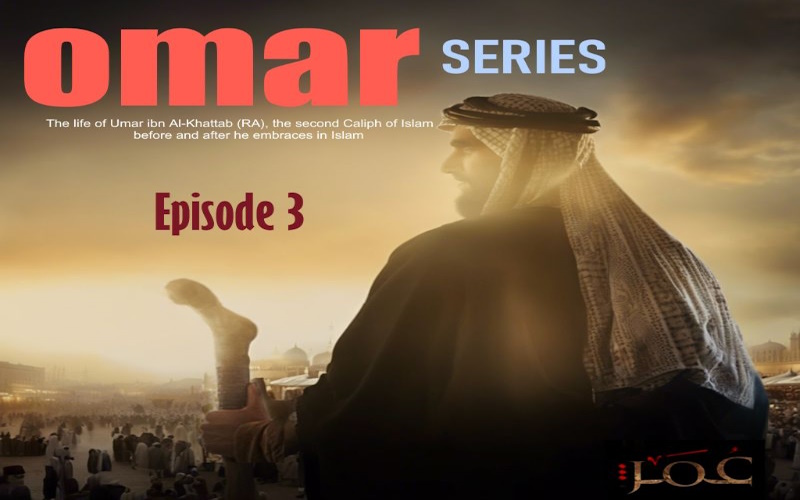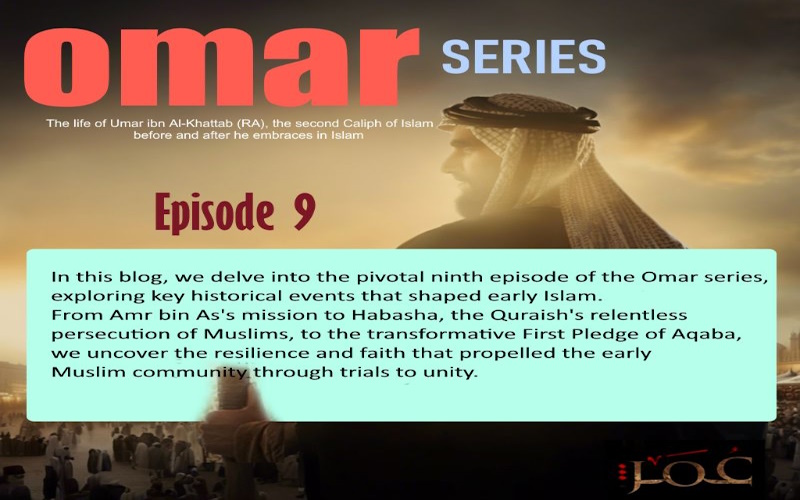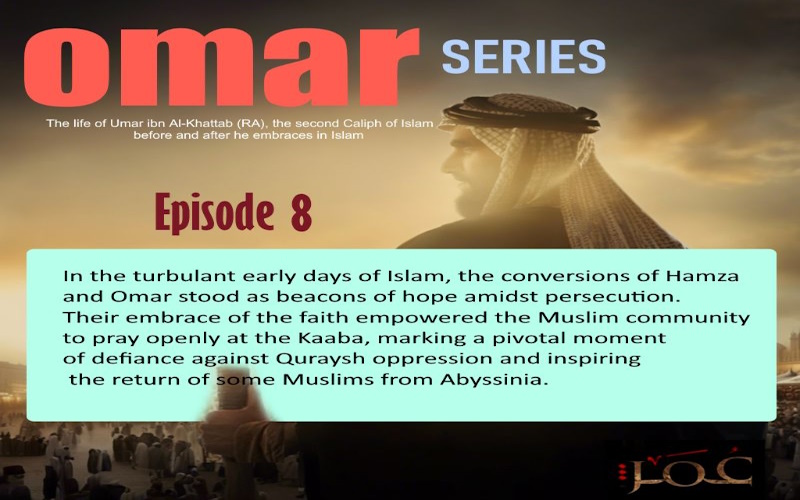The third episode of the “Omar Series” delves deep into the socio-political dynamics of Mecca during the early days of Islam. This episode presents a vivid dramatization of the challenges Prophet Muhammad (PBUH) faced from the Quraysh, the leading tribe of Mecca, and the internal rifts within the tribe as they grapple with the rising influence of Islam. Below, we explore the historical events depicted in the episode and how they correspond with Islamic tradition.
The Anguish of Abu Jahl and the Quraysh Nobles
Abu Jahl’s frustration at the beginning of the episode reflects the historical accounts of the Quraysh’s unease. The conversion of notable individuals like Abu Bakr, Uthman, and Abu Ubaidah to Islam was a significant concern for the Quraysh leaders. They feared the spread of Islam among the slaves and lower-class individuals, which could undermine their societal structure.

Bilal’s Intelligence and the Young Quraysh
Bilal ibn Rabah’s interactions with the young Quraysh, including Khalid ibn al-Walid and Amr ibn al-As, are fictional representations meant to highlight his wisdom and the irony of his enslaved status. Historical sources do confirm Bilal’s intelligence and later his important role in Islam as the Prophet’s muezzin (caller to prayer).
The Quraysh’s Deliberation and Abu Lahab’s Response
The discussions among the Quraysh leaders, including Al-Walid ibn Al-Mughira and Utbah, underscore their concerns about Islam’s spread. The historical authenticity of these specific deliberations is not recorded in detail, but the concerns they voice are consistent with what is known about the Quraysh’s opposition to Islam.
The Defiance of Abu Lahab
The episode’s depiction of Abu Lahab and his wife’s contempt for Muhammad’s prophethood is directly linked to historical and Quranic texts. Surah Al-Masad (Chapter 111 of the Quran) condemns Abu Lahab and his wife for their hostility towards the Prophet Muhammad (PBUH). The throwing of thorns in front of Muhammad’s door, although not mentioned in the Quran, is a detail that appears in Islamic traditions to illustrate their animosity.
The Stance of ‘Umar ibn Al-Khattab
‘Umar ibn Al-Khattab’s portrayal in the series reflects his initial opposition to Islam, which is historically accurate. His visit to his sister and brother-in-law and the discussions about the Quraysh’s internal politics provide insight into his character before his conversion to Islam, which would later be a pivotal moment in Islamic history.
The Role of Abu Bakr
Abu Bakr’s advice to remain steadfast and avoid conflict is representative of his peaceful and supportive role during the early days of Islam. Historically, Abu Bakr was known for his close companionship with the Prophet and his calm demeanor.
The Quraysh’s Ultimatum to Abu Talib
The demand that Abu Talib, the Prophet’s uncle, stop Muhammad’s preaching or hand him over is a significant event documented in Islamic history. Abu Talib’s protection of his nephew is well known, and his refusal to give in to the Quraysh’s demands is a testament to his loyalty.
The Quranic Challenge to Abu Lahab
The episode’s reference to the Quranic verses about Abu Lahab is a powerful example of the Quran addressing its contemporaries directly. The surah predicts Abu Lahab’s refusal to convert to Islam, which is a historical fact.
Conclusion
The “Omar Series” intertwines dramatization with historical events to create a narrative that captures the essence of the period. While the series takes creative liberties for storytelling purposes, many of the events and characters’ reactions are rooted in Islamic tradition and history. The portrayal of these events aims to provide viewers with a deeper understanding of the struggles and challenges faced by the early Muslims and their resilience in the face of adversity.









